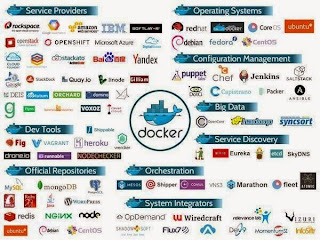docker -- commit and x86_64 packages
packages-x86_64-178-list
http://goo.gl/ipYRQN
20140306-x86_64-packages-178.tar.gz
http://goo.gl/qeKt6o
http://forum.slitaz.org/topic/installing-virtualbox-guest-additions-in-slitaz-50#post-34953
1.
root@boot2docker:~# docker run -it slitaz/slitaz-base
/ #
download 20140306-x86_64-packages-178.tar.gz and extra to /var/www/slitaz/x86_64
2.
/ # tazpkg recharge
================================================================================
Last packages.list is ready to use. Note that next time you recharge the
list, a list of differences will be displayed to show new and upgradeable
packages.
/ # tazpkg list-mirror | tail -8
zlib-dev
1.2.8-x86_64
Zlib compression library devel files.
72.0K (240.0K installed)
================================================================================
178 packages in the last recharged list.
3.
/ # tazpkg -gi file
Tracking dependencies for: file
================================================================================
Missing: libmagic
================================================================================
1 missing package to install.
Installation of: libmagic
================================================================================
Copying libmagic... [ Done ]
Extracting libmagic... [ Done ]
Extracting the pseudo fs... [ Done ]
Installing libmagic... [ Done ]
Removing all tmp files... [ Done ]
================================================================================
libmagic (5.14) is installed.
Installation of: file
================================================================================
Copying file... [ Done ]
Extracting file... [ Done ]
Extracting the pseudo fs... [ Done ]
Installing file... [ Done ]
Removing all tmp files... [ Done ]
================================================================================
file (5.14) is installed.
4.
/ # spk info
Spk info
================================================================================
Architecture : x86_64
Database : /var/lib/tazpkg/installed
Cache info : 0 /var/cache/tazpkg
Mirror URL : /var/www/slitaz/x86_64/packages/
Extra mirrors : 0
Installed : 20
Mirrored : 178
================================================================================
5.
/ # file /lib/libc-2.13.so
/lib/libc-2.13.so: ELF 64-bit LSB shared object, x86-64, version 1 (SYSV), dynamically linked (uses shared libs), for GNU/Linux 2.6.32, stripped
6.
/ # tail -5 /var/lib/tazpkg/installed.md5
f1e53b247bb72fcdfd225c89f93a7e71 zlib-1.2.8-x86_64.tazpkg
9afd31e45388e5b36364458d53a682e3 util-linux-uuid-2.21.1-x86_64.tazpkg
2e2cd1a2e890b840e5cbc637e7ddd5a3 util-linux-blkid-2.21.1-x86_64.tazpkg
0cb1f6e932344f44249e3c12f2fb6a89 file-5.14-x86_64.tazpkg
42a187ac1a9d649cb7e0521396ee9696 libmagic-5.14-x86_64.tazpkg
/ # exit
7.
root@boot2docker:~# docker ps -a
CONTAINER ID IMAGE COMMAND CREATED STATUS PORTS NAMES
353efd20bcd7 slitaz/slitaz-base:latest "/bin/sh" 17 minutes ago Exited (0) 6 seconds ago sick_euclid
root@boot2docker:~# docker commit 353efd slitaz/slitaz-file
8ec8ca5baa6103e9573e0884f891d9c1213d0e84523b60334a16d39eaa72a67c
root@boot2docker:~# docker images
REPOSITORY TAG IMAGE ID CREATED VIRTUAL SIZE
slitaz/slitaz-file latest 8ec8ca5baa61 6 seconds ago 11.6 MB
slitaz/slitaz-base latest 0bd2fd062ec7 2 days ago 8.778 MB
8.
root@boot2docker:~# docker run -it slitaz/slitaz-file
/ # file /usr/bin/file
/usr/bin/file: ELF 64-bit LSB executable, x86-64, version 1 (SYSV), dynamically linked (uses shared libs), for GNU/Linux 2.6.32, stripped
9.
/ # tazpkg info file
Tazpkg information
================================================================================
Package : file
Version : 5.14
Category : system-tools
Short desc : Retrieve file type.
Maintainer : erjo@slitaz.org
Depends : zlib libmagic
Build deps : zlib-dev python
Web site : http://www.darwinsys.com/file/
================================================================================
10.
/ # du -sh /
11.9M /
/ # exit
root@boot2docker:~#







